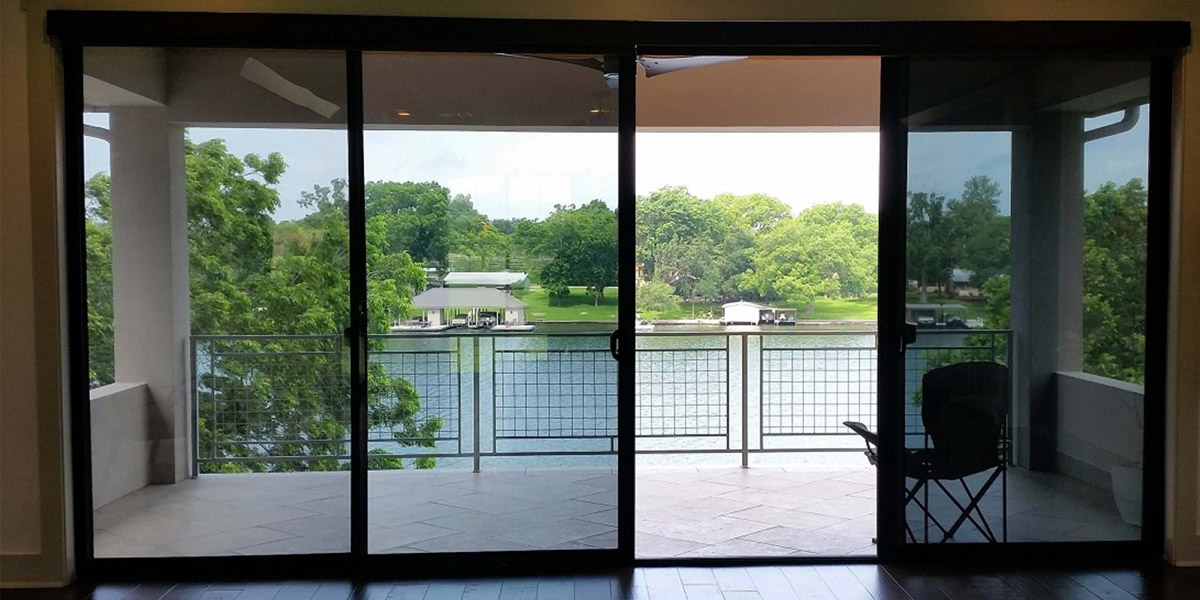Residential Window Tint: Improve Privacy and Design in Your Home
Residential Window Tint: Improve Privacy and Design in Your Home
Blog Article
How Residential Window Tinting Enhances Your Home's Energy Efficiency
Residential home window tinting offers a compelling remedy for home owners looking for to boost power performance within their space. By using specialized movies to home windows, it successfully reduces warmth transfer, consequently stabilizing interior temperatures and decreasing the demand for too much home heating or cooling. This not only cuts energy consumption yet likewise gives a much more comfortable setting by mitigating glare. Recognizing the subtleties of how tinting jobs and choosing the suitable kind for your home can be pivotal. Strangely enough, what elements should one consider prior to making this investment?
Understanding Window Tinting
Comprehending home window tinting is essential for property owners seeking to enhance both comfort and power effectiveness in their home. Residential Window Tint. Window tinting involves the application of a thin movie to the interior or outside surface area of glass windows. This movie can dramatically regulate the amount of sunlight and heat that enters a home, thus influencing interior environment problems
There are various kinds of window tinting films offered, each with distinctive homes. The efficiency of window tinting is usually measured by its Visible Light Transmission (VLT) portion, which indicates how much light can pass through the movie.
Advantages of Power Effectiveness
Home window tinting not only boosts aesthetics yet also plays a substantial function in boosting energy performance within domestic rooms. By decreasing warmth transfer through home windows, tinted films develop a more steady interior climate, which can bring about significant decreases in power consumption for heating & cooling. This energy effectiveness converts into reduced energy bills, supplying homeowners with considerable lasting savings.

In addition, window tinting enhances the convenience of living areas. By minimizing glow and obstructing damaging UV rays, tinted home windows produce a more pleasurable atmosphere, which can bring about enhanced well-being for owners. The protection against UV rays additionally assists preserve furnishings and flooring from fading, adding to the longevity of home items.
Just How Tinting Functions
Tinting movies operate through a mix of innovative materials and technologies designed to manage the amount of solar power going into a home. Primarily composed of polyester, these films typically incorporate ceramic or metal bits that mirror and absorb warm. This twin capability enables them to click to read more significantly minimize the infiltration of ultraviolet (UV) rays and infrared radiation while permitting visible light to travel through.
The effectiveness of window tinting is gauged by its solar heat gain coefficient (SHGC), which suggests just how much solar energy is transferred with the home window. Lower SHGC values are better as they denote higher warm denial. Additionally, window tints can include a selection of tones, allowing property owners to tailor their visual choices while enhancing energy effectiveness.
Moreover, these movies act as a barrier, stopping warmth loss throughout cooler months by mirroring interior warmth back into the home. This thermal insulation effect complements the cooling benefits acquired during warmer months, contributing to a balanced indoor climate year-round. By handling solar energy successfully, property home window tinting not just improves comfort however likewise plays an essential role in minimizing energy consumption and decreasing energy costs.
Selecting the Right Tint

There are various kinds of window films offered, including dyed, metalized, and see this site ceramic. Ceramic click resources movies give outstanding warm control without jeopardizing exposure and are extremely resilient, making them a popular selection.
Visible light transmission (VLT) is an additional vital aspect, as it suggests the quantity of all-natural light that can go through the colored glass. Homeowners should pick a color with a VLT that matches their lights preferences while still giving adequate glow reduction.
In addition, assessing the solar warmth gain coefficient (SHGC) can aid identify how well a tint can block heat from sunlight. A lower SHGC suggests better warm control, ultimately boosting power effectiveness.
Installment and Upkeep Tips
Correct installment and upkeep are important parts in optimizing the advantages of residential home window tinting. Professionals additionally utilize specialized strategies and tools, which can boost the longevity and performance of the tint.
Complying with setup, maintenance is crucial to lengthen the life of the home window movie. It is advised to wait at least 30 days before cleaning the tinted windows to enable the glue to treat completely.
Dealing with these issues promptly can prevent more damages and preserve energy performance. By sticking to these setup and maintenance tips, home owners can guarantee their window tinting proceeds to supply considerable energy financial savings and comfort for years to come.
Conclusion
In final thought, residential window tinting offers as an effective option for enhancing energy performance within homes. By reducing warm transfer and obstructing hazardous UV rays, home window movies contribute to reduce power consumption and enhanced interior convenience.
Window tinting includes the application of a slim movie to the inside or outside surface of glass windows. By minimizing warmth transfer through windows, tinted movies develop an extra stable indoor climate, which can lead to considerable decreases in power consumption for heating and cooling.The efficiency of home window tinting is determined by its solar warmth gain coefficient (SHGC), which shows how much solar energy is transferred with the window. By handling solar power successfully, household window tinting not only enhances comfort but also plays an important function in minimizing energy usage and reducing utility expenses.
By decreasing warm transfer and blocking dangerous UV rays, home window movies contribute to reduce energy consumption and improved indoor convenience.
Report this page